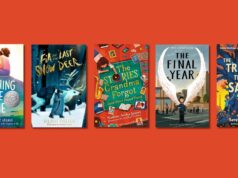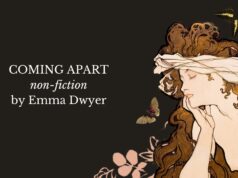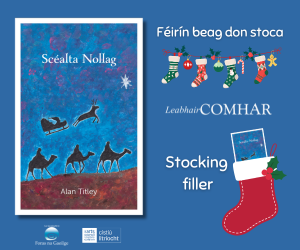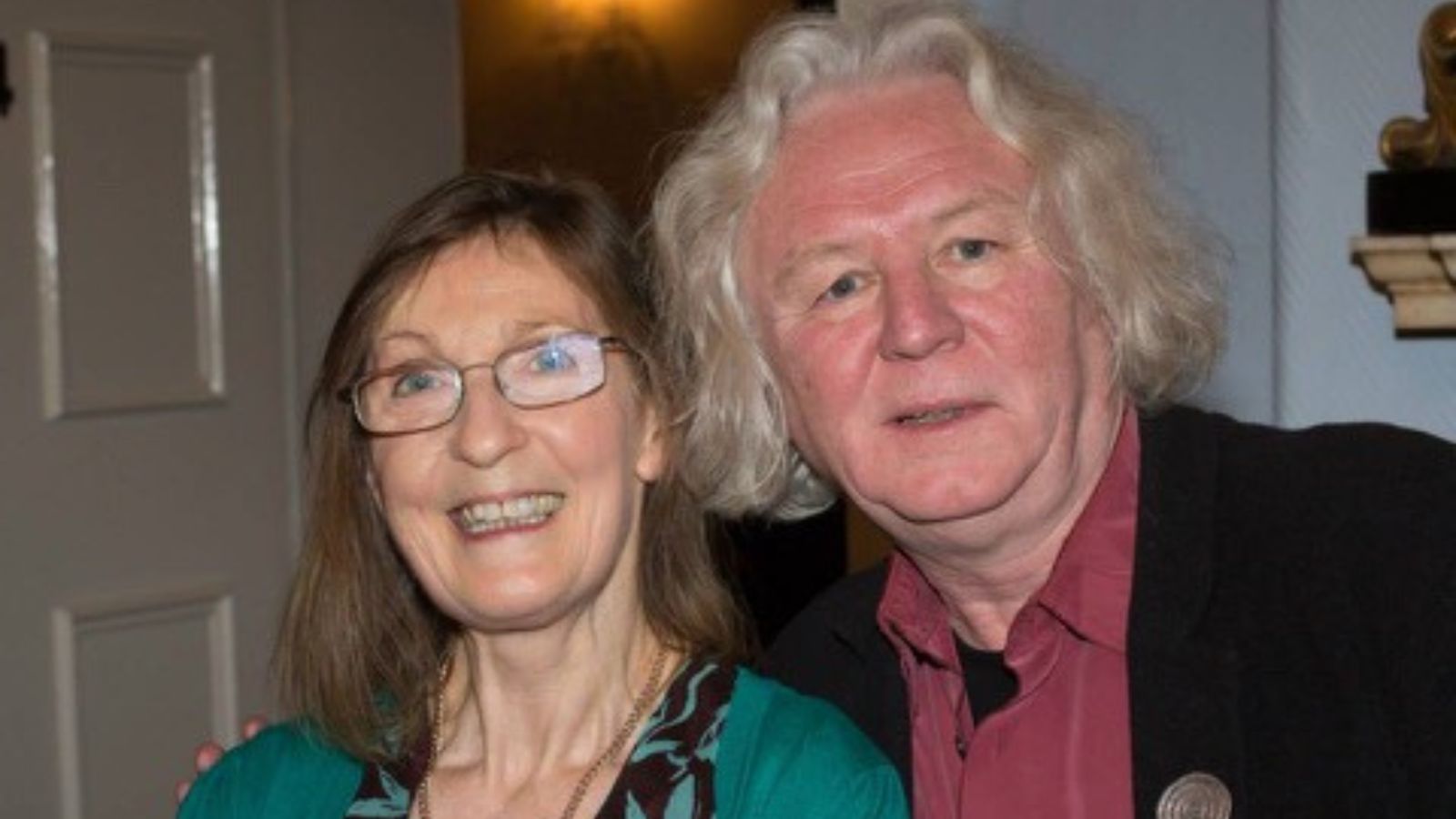
A Week, a Month and a Day: Remembering Breda Wall Ryan
by Lisa Frank, Co-Director of Doire Press
Two days after Breda Wall Ryan’s death, out of nowhere I found myself asking Siri to play ‘To Sir with Love’, the theme song from the 1967 film featuring Sydney Poitier and the singer Lulu. The chorus gives voice to the question of how to thank someone who has profoundly changed your life, with the last line quoting the title of the song, ‘To Sir with Love’. (For copyright reasons the lyrics cannot be quoted, but here is a link to the song.)
In the days that followed, as the outpouring of grief of the news of Breda’s death spread across all ends of social media, the song would play in my head. It played while I sat at my desk, answering work emails. It played while chopping garlic and white onions for dinner. And it played while trying to fall asleep at night. I didn’t think much about it at first—it’s a catchy enough song certainly—but then, without thinking, I started recomposing the lyrics with Breda in mind.
Take one:
How do you thank a poet
who has taken you from scribbles to Shakespeare?
To say that Breda’s poetry has had a significant impact—a legacy—on Irish literature is not an exaggeration. To have played a part, however small, in sharing her work with the world has truly been a gift that has only intensified with each book. This is indeed the very best part of being a publisher. But with Breda it was more than that. It was also personal.
To say that Breda’s poetry has had a significant impact—a legacy—on Irish literature is not an exaggeration
I remember sitting at my desk when John came to my office door after having just finished reading Breda’s manuscript for what would come to be her debut collection, In a Hare’s Eye. He had a look on his face that I didn’t know what to make of. It was something between bewilderment and delirium, with just a hint of what I later confirmed was glee. ‘What’s wrong?’ I asked him. ‘It is truly extraordinary,’ he said. But then he shook his head, his eyes nearly twitching. ‘The language is alive. It’s bursting with energy. It’s… You just have to read it.’ And so I did.
Besides Breda’s masterful use of language and imagery about nature and mythology that is especially evident in her poems, I was also struck by the wisdom and honesty in her words that are both beautiful and brutal. The poem from that collection that always sticks with me is ‘Knots’, about going into a butcher’s to purchase a cow’s heart the day before she was scheduled to have heart surgery so that she could study how the muscle works. The vividness in her words is nothing less than haunting. The collection went on to win the 2016 Shine / Strong Prize, judged that year by Kevin Barry. In the award ceremony, he said, ‘I think only a poet as sure-footed as this on the line and as certain of her own gifts could bring the poems to the very difficult places they sometimes go.’
I was also struck by the wisdom and honesty in her words that are both beautiful and brutal
Breda continued to grow as a poet with her second collection, Raven Mothers, which is a work of sheer wonder and magic. It is her final collection, however, entitled These are My People, in which Breda truly seemed to have come into her own with both spirit and playfulness in which she arrives at a resolute understanding about her existence, her role in the natural world. It is a wholly—and dare I say holy—illuminating work, with a cover image that is measurably luminous, a photograph by her brother Eamon Wall as part of his Hedgerow Flora collection.
Take two:
How do you thank someone
who has taken you from sand to sandcastles?
When I think about Breda I always remember going back and forth with her via email in search of the perfect hare for the cover of In a Hare’s Eye. She pointed me in the direction of Northern artist Sarah Majury, who had many a hare in her portfolio. I think we had looked at no less than two dozen hares, some looking directly at us, whiskers straight or askew, other hares in profile. I don’t remember which one of us found Spring Clean, the painting that was eventually used for the cover. I just know that we were equally steadfast in our certainty that we’d found the right hare. The little fella has his back to the viewer, yet his head is turned to the side, his all-knowing eye looking directly at you. I contacted Sarah immediately. I remember that there was a period of panic when she told us that the painting had been sold and that she didn’t know if she had—or could get—an image that was high enough resolution for what we needed. Maybe we waited two weeks or maybe it was only two hours. I just know that Breda and I were both in bits, worrying that it wouldn’t work out. But fate was on our side and in the end we would have our hare.
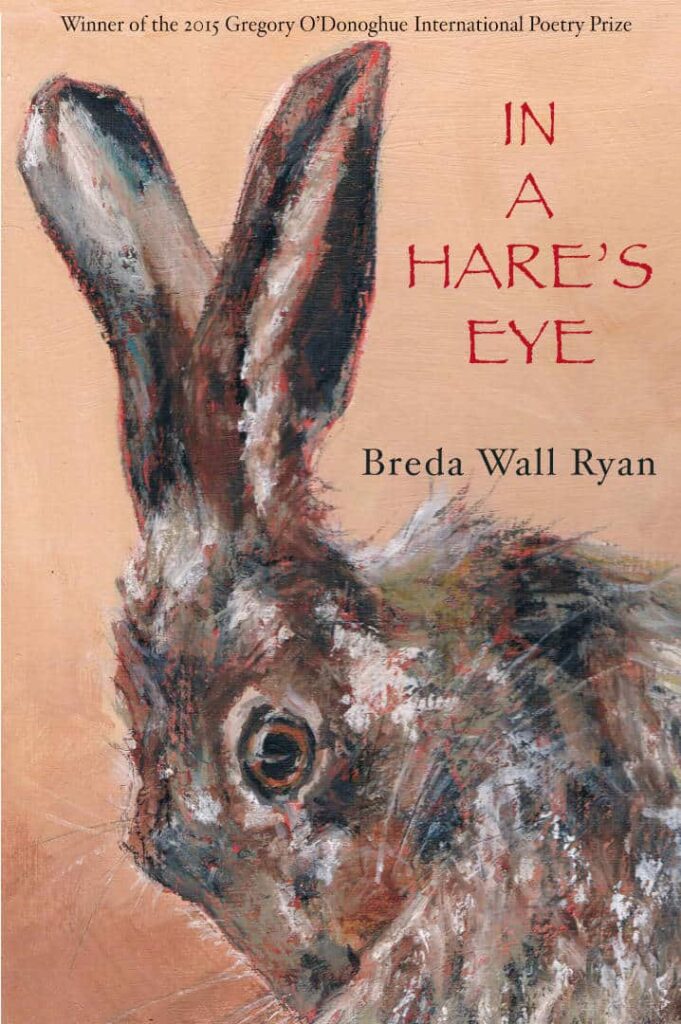
Another memory about Breda that will always stay with me is watching her on stage at the Shine / Strong Award ceremony. John and I told each other that it didn’t matter if she didn’t win, we were just proud that her book had been shortlisted. But when Kevin Barry referred to the winning poet as ‘a white witch’, John whispered into my right ear that indeed our Breda had won. A moment later Breda’s name was announced and I was on my feet whooping and hollering as only an American can do. The other shortlisted collections were certainly very strong. But we believed Breda’s was on another level—truly extraordinary as John had said—and we were delighted that Kevin Barry felt the same.
Take three:
How do you thank someone
who has taken you from shadow to starlight?
The final memory I will share of Breda is not of an event or of anything particular that she said or did, but more of a montage of sorts, recalling her in the beautiful home in Bray that she shared with her husband Jerry, where she invited me and John to stay after the launch of her first two collections. It’s of her poking fun at herself for all her many stacks of books that were piled around the house, including the steps of the staircase; it’s of her chatting conspiratorially with her granddaughter Clodagh, making sure the young girl didn’t feel left out of adult conversation; it’s of the care she showed me and John as she served us plates of her delicious fish pie with mashed potatoes piled neatly on top; it’s of her talking to her dog, a lovely Labrador called Levi, making sure he had everything he needed and reassuring him against the stress of strangers in the house; and it was the unmistakable affection she shared with Jerry as they sat at the breakfast table talking about their plans for the day, Breda staying home and relaxing and Jerry getting ready for a boat trip. The gentleness and sheer warmth was as striking in Breda as was her gift for words and rhyme. She was, in every way, a quite singularly beautiful human being.
Breda has left a legacy that will live on for many lifetimes to come
Although Breda’s death has left us tremendously sad, we couldn’t help but be struck by the vast gush of love for her that has flowed in recent weeks. All the posts on social media about people’s memories of her and about how generous she had been in her support of her fellow writers. There were indeed dozens-upon-dozens of posts and tweets. It was comforting to read them, as were the many emails and private messages we received from people telling us how strongly her words had affected them. Watching the memorial service and the moving tributes and readings by her family, including her daughters Amy, Bobbie and Jeanne-Marie, her daughter-in-law Andrea and her sister Séanie, as well as fellow poets Eleanor Hooker, Nessa O’Mahony, Jane Robinson and Jessica Traynor. And of course the beautiful Festschrift in the form of poems honouring Breda by sixty poets that was quickly organised with love by Keith Payne and given to Breda and her family the week before she died, giving them all, including Breda, solace in her final days. All this lets us know not only that we are not alone in our grief, but more importantly, that Breda has left a legacy that will live on for many lifetimes to come. For that we are endlessly grateful.
My attempts to compose the chorus of the song—to thank Breda for all that she’s given us—has stalled. But then I’m not a poet. So I will just fast-forward to the last line:
To our White Witch, with love.









